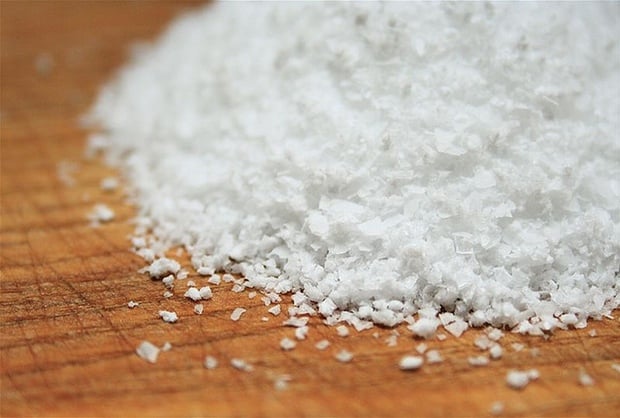“Everything’s better with a little salt.”
It’s a hard sentiment to disagree with, and it’s also the tagline for the new advertising offensive from the Alexandria-based Salt Institute. This past Monday, the nonprofit trade association “launched a three-week radio, print, and Internet campaign to laud the benefits of salt,” according to the Washington Business Journal. The campaign offers a few different claims about salt’s advantages, from de-icing roads to balancing flavors in food “without adding a single calorie.”
The institute’s claims argue against various health institutions’ push to reduce our daily sodium intake. For example, the Centers for Disease Control and Prevention (CDC) recommend that the average American consume no more than 2,300 milligrams of sodium a day. Nine out of ten Americans surpass that amount each day.
A few of the campaign’s health claims seem, at first glance, a tad surprising. So we asked Morton Satin, vice president of science and research at the Salt Institute, and Michael Jacobson, PhD, cofounder of the DC-based Center for Science in the Public Interest, to weigh in on these statements.
Below are five claims made by the Salt Institute’s new campaign and both experts’ reactions to them.
1) “No electrolyte is more essential to human survival than salt.”
Jacobson claims the wording is misleading, while Satin says it’s spot on.
Jacobson: “We need a lot of electrolytes—salt is certainly one of them.” he says. “But I don’t know how you would define ‘most.’ The body needs potassium and magnesium. I don’t think you’d be deader in the absence of one than in the absence of the other.”
Satin: “[Salt] is the main electrolyte in our plasma. It’s not only in humans; it’s in every vertebrate and a good number of invertebrates,” he says. “That’s common knowledge. It’s been common knowledge for centuries.”
2) “[Sodium is] actually what makes every cell in your body function.”
Jacobson, again, has trouble with the wording while Satin says it’s true for his aforementioned reason.
Jacobson: “Actually, it’s not true. The cell needs all kind of nutrients, and they need vitamins and minerals like sodium and potassium. [But] it’s not exclusively sodium or salt. That makes it sound like sodium is the key.”
Satin: “Again, sodium is the main electrolyte in our plasma, [which makes the body function].”
3) “People with the highest sodium intake have the longest lives.”
Considering the general desire of most people to cut down on their sodium intake, this is one of the more surprising claims on the list. Jacobson postulates a faulty comparison, while Satin points out that races with the most life longevity consume more sodium.
Jacobson: “Maybe they’re using some kind of international comparison, where Western societies have higher sodium intake but also have antibiotics. [. . .] The key thing with salt or with sodium is that it promotes high blood pressure, and high blood pressure promotes heart attacks and strokes, which isn’t conducive to long life. That’s the elephant in the room the commercials try to obscure.”
Satin: “The highest consumers of salt in the world are the Swiss and the Japanese,” he says, noting that they boast the longest lifespans. He also points out that the lowest lifespans are found in tribal people in the rainforest, “where the minerals have all been washed out.”
4) “The American Journal of Hypertension . . . say[s] there is no strong evidence that cutting salt intake reduced the risk of heart attacks or strokes.”
Jacobson says this is a result of misleading research, while Satin says it’s irresponsible to only look at blood pressure health in relation to salt.
Jacobson: “There’s a general agreement that high-sodium diets lead to high blood pressure, and high blood pressure leads to heart attacks and strokes. But studies didn’t say salt led to heart attacks” until 1999 when a published study showed that “people who cut their sodium had a 30 percent lower risk of heart attack or strokes at the end of 10 or 15 years.”
Satin: “The entire understanding we have about sodium is an urban myth that’s been [spread] by all the public health institutes in our country,” he says, contending that these institutes only look at blood pressure rather than the other aspects of sodium in health.
5) “Reducing salt to levels recommended by the US government can cause harm and decrease life expectancy.”
Jacobson again says this is the result of faulty studies, while Satin says it’s verifiably true.
Jacobson: “That relates to those studies . . . that rely on the key flaw: [the belief] that the people with very low sodium intakes were actually healthy, regular people rather than people who didn’t fill out the survey completely.”
Satin: “More people die when they are on a low-salt diet than when they are on a regular salt diet,” he says, claiming that the regular salt diet is consumed around the world, save for places with a shortened life span such as “primitive tribe people.”



















